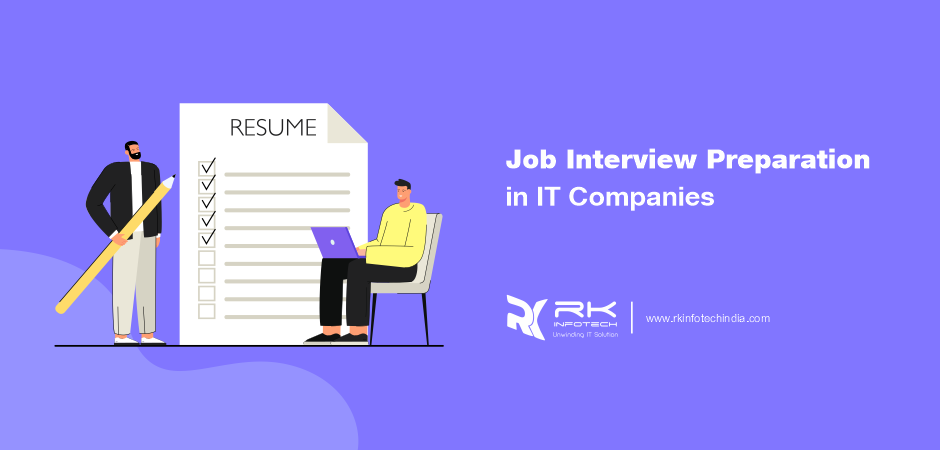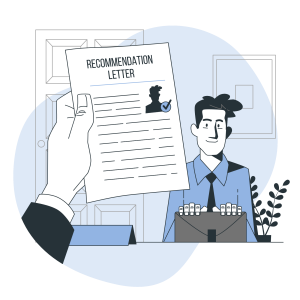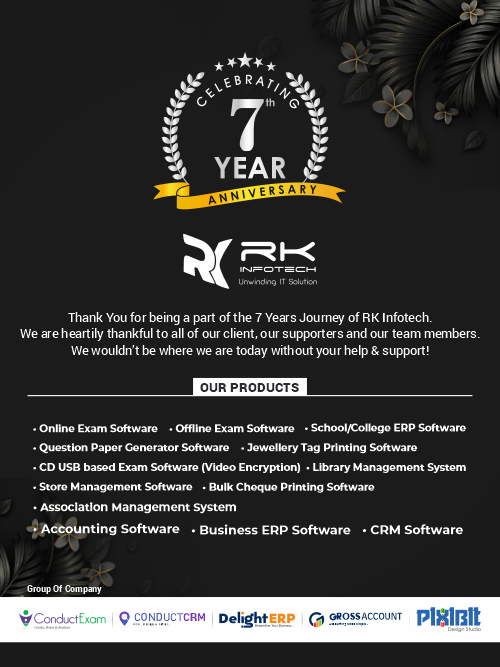Job Interview Preparation in IT Companies
Introduction
Now a days, an IT company’s Job requires technical expertise and specialised skills. Job interviews in an IT company could be different from other sectors. It can be intimidating, but with the right preparation, you can boost your confidence and get the right job related to you. In this blog, we’ll go through some tips on how to prepare for a job interview in an IT company.
If you’re looking to land a job in the tech industry, you also think of how work culture available in the IT industry. The work environment affects employees’ productivity and efficiency. Check out our guide on what work environment in an IT company to learn more about what to expect.
The recruitment process of one company is different from another. You have to prepare for a job interview with some basic research.
Topics you should consider to prepare for a Job Interview.
1) Research about Company’s Background
Research the company and the role Before the interview, take some time to research the company and the role you’re applying for. This will help you understand the company’s values, mission, and culture, which can give you an idea of what they’re looking for in a candidate. It’s also important to read the job description carefully and note down the specific skills and qualifications required for the position.
2) Brush up on your technical skills
Since IT jobs require technical skills and knowledge, make sure you brush up on your technical skills before the interview. You can do this by reviewing your coursework, studying industry trends, and practising coding or other technical tasks related to the job.
Additionally, it’s a good idea to research the specific technologies and tools used by the company you’re interviewing with, so you can speak knowledgeably about them during the interview.
3) Practice your answers to common interview questions
While technical skills are important, it’s also crucial to prepare for behavioural and situational questions that may come up during the interview. These questions are designed to test your problem-solving abilities, teamwork skills, and communication style. Some common questions you might expect include:
- Can you tell us about a time when you faced a difficult technical challenge and how you overcame it?
- How do you stay up-to-date on industry trends and new technologies?
- How do you approach problem-solving in your work?
By practising your answers to these types of questions, you’ll be better prepared to showcase your skills and experiences to the interviewer.
4) Prepare questions to ask the interviewer
Towards the end of the interview, the interviewer may ask if you have any questions for them. This is an opportunity for you to learn more about the company culture, the role, and the team you’ll be working with. It’s a good idea to prepare some questions in advance, so you don’t miss out on this chance to gather more information. Some good questions to ask might include:
- Can you tell me more about the day-to-day responsibilities of this role?
- What are the company’s long-term goals for this department?
- How does the company encourage professional development and growth?
- Can you describe the company culture and values?
5) Dress appropriately and be on time On the day of the interview
Make sure you dress appropriately and arrive on time. Dressing appropriately means dressing professionally, which typically means wearing a suit or dress pants and a blazer. Being on time means arriving at least 10-15 minutes early, so you have time to check in and gather your thoughts before the interview.
6) Showcase your projects and portfolio
In addition to brushing up on your technical skills, it’s important to showcase your work and projects to the interviewer.
This can be in the form of a portfolio or GitHub profile, where you can highlight your technical expertise and demonstrate your ability to work on complex projects. Make sure to bring this up during the interview and explain how your projects relate to the job you’re applying for.
7) Practice your communication skills
Communication skills are important in any job, but especially in the IT industry, where technical jargon can be difficult to understand for those outside the field.
8) Be ready to discuss salary and benefits During the interview
The interviewer may bring up the topic of salary and benefits. Make sure to do your research on industry standards for your role and experience level, so you can negotiate effectively. Additionally, be ready to discuss other benefits like health insurance, retirement plans, and vacation time.
9) Follow up after the interview
After the interview, it’s important to follow up with a thank-you email or note to the interviewer. This can help you stay top of mind and demonstrate your professionalism and interest in the role. If you don’t hear back after a few days, it’s also appropriate to send a polite follow-up email asking for an update on the hiring process.
Here below the list of examples for Q&A.
Job Interview Questions and Answers for Freshers
1. Tell me about yourself.
Answer: This is usually the first question in an interview. You can start by giving a brief background about yourself, including your education and work experience. It’s also good to highlight your strengths, skills and accomplishments that are relevant to the job you are applying for. Remember, this answer not be in a one-liner you have to be more descriptive like 6 or 7 topics.
2. What are your strengths?
Answer: Think about the skills that you have that make you stand out from others. It’s good to give examples of how you’ve used these strengths in the past to achieve results.
3. What are your weaknesses?
Answer: Be honest about your weaknesses, but also show that you are taking steps to overcome them. For instance, if you struggle with public speaking, you could mention that you’ve been attending public speaking classes to improve your skills.
4. Why are you interested in this job?
Answer: Talk about how your skills and experience align with the job requirements. It’s also good to mention any specific aspects of the company or job that interest you.
5. Why do you want to work for this company?
Answer: This question is designed to test your knowledge about the company. Do your research beforehand and mention what you admire about the company, its culture, or its products/services.
6. What are your salary expectations?
Answer: It’s important to do your research and have a realistic expectation of what the position pays. You can mention a range but also show that you are open to negotiation.
7. How do you handle stress or pressure?
Answer: Explain how you prioritize tasks and manage your time to ensure that deadlines are met. You can also talk about how you cope with stress, whether it’s taking a break, going for a walk, or talking to a colleague.
8. What are your career goals?
Answer: Talk about your long-term career goals, but also mention how this job will help you achieve them. This shows that you are interested in growing with the company.
9. How do you handle conflicts with colleagues or supervisors?
Answer: Give an example of a conflict you’ve experienced and how you handled it. It’s important to show that you can resolve conflicts professionally and respectfully.
10. Do you have any questions for us?
Answer: Always prepare a few questions to ask the interviewer. This shows that you are interested in the job and the company. You could ask about the company culture, training opportunities, or what a typical day on the job would look like.
Technical Questions and Answers for Job Interviews:
1. What programming languages are you proficient in?
Answer: This will depend on your experience and the job requirements. You could list the programming languages you are most comfortable with and give examples of projects you’ve worked on using those languages.
2. What are the differences between SQL and NoSQL databases?
Answer: SQL databases use a relational model, while NoSQL databases are non-relational. SQL databases are good for structured data and complex queries, while NoSQL databases are better for unstructured data and scalability.
3. What is version control, and what tools have you used for it?
Answer: Version control is a way to manage changes to source code. Git is a popular version control tool that allows developers to track changes, collaborate on code, and revert to previous versions if needed.
4. What is an API, and how have you used it?
Answer: An API (Application Programming Interface) allows two applications to communicate with each other.
5. What is object-oriented programming, and how have you used it?
Answer: Object-oriented programming (OOP) is a programming paradigm that focuses on objects and classes. You could explain the basic concepts of OOP, such as inheritance, encapsulation, and polymorphism, and give an example of a project where you’ve used OOP principles.
6. What is the difference between a stack and a queue?
Answer: A stack is a data structure that follows a last-in, first-out (LIFO) principle, while a queue follows a first-in, first-out (FIFO) principle. You could give an example of a scenario where a stack or a queue would be used.
7. What is a design pattern, and how have you used it?
Answer: A design pattern is a reusable solution to a common problem in software design. You could explain some common design patterns, such as the singleton pattern or the factory pattern, and give an example of a project where you’ve used a design pattern.
8. What is a responsive web design, and how have you implemented it?
Answer: Responsive web design is a design approach that ensures that a website looks good and functions well on different devices, such as desktops, tablets, and smartphones. You could give an example of a project where you’ve implemented responsive web design principles.
9. What is the difference between a server-side language and a client-side language?
Answer: A server-side language is executed on the server, while a client-side language is executed on the user’s browser. Examples of server-side languages are PHP and Python. An example of a client-side language is JavaScript.
10. What is the difference between a web server and an application server?
Answer: A web server handles HTTP requests and serves static web content, while an application server handles dynamic web content and business logic. An example of an application server is Tomcat, which is used to deploy Java web applications.
In conclusion, preparing for a job interview in an IT company requires a combination of technical skills, communication skills, and industry knowledge. By showcasing your technical projects and portfolio, understanding the company’s industry and competition, practising your communication skills, being ready to discuss salary and benefits, and following up after the interview, you’ll be well-prepared to land your dream IT job.
Many IT companies help Freshers to start their careers in Web Development, Application development, Graphic Design, SEO, and Product development posts. With the right state of mind and learning under experienced employees, RKInfotech is the top Software Development Company in Rajkot. Click here to know more.










